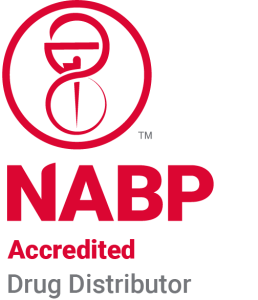Legislative Advocacy for Pharmacy Owners, Getting Involved and Making an Impact on Government
Legislative action might seem complicated for pharmacy owners, but getting involved is incredibly important to help shape the laws that affect your pharmacy and community. We want to help break down this complex process for you, making it easy to understand and giving you the tools to get involved. Our goal is to show you how laws are made, the roles various parts of the government play, and steps you can take to be a part of making laws. Let’s dive in!
As a pharmacy owner, you wear multiple hats – not only are you running a business, but you’re also deeply involved in a complex world of regulations that affect your pharmacy. This means the decisions made by legislators can significantly influence how you operate, the services you provide, and the overall well-being of your community.
How can you help your pharmacy and community?
Your role as an advocate for independent pharmacies is vital. Advocacy means actively speaking up for what you believe in, the interests of your pharmacy, the community you serve and the interests of the entire community of independent pharmacy owners. You engage in the legislative process by expressing your opinions, concerns, and needs to those who have the power to shape laws.
IPC Government Relations is here to help during these critical times, we watch the progress of these bills, so you don’t have to. We will send out communication when it’s time to make your voice heard. These communications serve as reminders and provide you with the necessary tools and information to make your voice heard effectively.
Building relationships with lawmakers is a key aspect of effective advocacy. When legislators understand your perspective and the challenges you face, they can make more informed decisions. This involves not just voicing your opinions but also establishing a connection with the individuals who create and vote on laws. Developing these relationships opens communication, making it more likely that your voice will be heard and considered.
Our role at IPC is to guide you through this advocacy journey. We provide resources, information, and strategies to help you effectively communicate your needs to legislators. The stronger your advocacy efforts, the more influence you can have in shaping laws that not only benefit your pharmacy but also contribute to the overall well-being of your community. By being an active participant in the process, you become a crucial part of the conversation, ensuring that the laws created align with the best interests of independent pharmacies and the communities they serve.
Understanding the legislative process, the roles the legislative bodies play

We are on a journey to understand how laws are made! First things first, let’s learn some important words like bills (which are ideas for new laws), statutes (the written idea), committees (teams that check the ideas), and amendments (changes to the ideas). Knowing these words will help you navigate the complex world of laws.
Think of understanding the law-making process like finding your way through a maze, there are lots of twists and turns and occasionally dead ends. As a pharmacy owner who wants to be more involved, you need to know how an idea becomes a law. Let’s break it down step by step, so you are armed with special knowledge!
The journey starts when someone has a big idea or a problem to be solved which needs a law to be written. For example, you care a lot about fixing how pharmacies get paid for prescriptions, like reforming the current system with Pharmacy Benefit Managers (PBM). This idea becomes a bill and is introduced by a legislator (a lawmaker). Keep your eyes open for bills that could affect your pharmacy or community!
Now, the bill is going through a test in a committee. They look at all the details, suggest changes (or amendments), and even listen to experts. The PBM Transparency Act, for instance, had to face the U.S. Senate Committee on Commerce, Science, and Transportation, a group of 27 members. If the idea is good it will pass through the committee and move on to the entire Senate, if it is not, it will be voted down and likely never become a law.
Once a bill passes a committee vote, it moves on to be debated on the floor of the House or Senate. Every member of the House or Senate gets to talk about the bill, suggest changes (or amendments), and you, as a pharmacy owner, can watch and even join in. This is your chance to be an advocate! Connecting with your legislators at this moment can help provide them with context for how the proposed law will either help or hurt your business, community, or industry.
Then comes the important moment – the votes from the lawmakers. The bill needs lots of ‘yes’ votes to move forward (a majority of the 100 Senators or 435 members of Congress). Here is when you can make your voice heard, connect with lawmakers, tell them how the law affects your pharmacy and community, and gather support from others.
In some places, the bill goes through the two big legislative bodies (House and Senate). Remember, each legislative body has its own way of doing things, so it’s like knowing the rules of two different games. If you’re not sure who your lawmakers are, check congress.gov or visit the IPC Government Relations page to find and connect with them.
Now, you have a guide to jump in at key moments. Being an advocate at each stage of the process means you can change how the law turns out and make sure it helps your pharmacy. This knowledge will make you an advocate, which is important for your pharmacy to stay strong and healthy!
What are the different legislative bodies?
There are two big groups of lawmakers – one at the federal level and one at the state level. Both groups make rules and pass laws that affect how your pharmacy works.
First, let’s look at the kind of laws made at the state level. State lawmakers decide on things like how pharmacies get licenses, what services you are allowed to offer, and even certain policies (rules) about Medicaid. These rules are important for your day-to-day work, and how you help people in your community. IPC has been fighting for pharmacies like yours for decades, our advocacy has helped pass new laws in states like California, Ohio, and Michigan.
Next up is the federal level. These are laws made by the United States Congress (the House of Representatives and the Senate). They decide things that affect pharmacies across the country, laws about Medicare and Medicaid, the schedule for medicines, and even big changes in healthcare and PBM reforms.
In the coming weeks there will be a big vote on a special bill in the US Congress to vote on a big federal spending plan. This plan may potentially have three important pieces added to it – the Modernizing & Ensuring PBM Accountability Act (S.2973), the Better Mental Healthcare, Lower-Cost Drugs, and Extenders Act (S.3430), and the Pharmacy Benefit Manager Transparency Act (S.127). If these three bills get passed, it could directly affect how much money your pharmacy gets reimbursed.
As a pharmacy owner, you need to keep an eye on both the state and federal legislators. By knowing their differences, you can become someone who can make things better for your pharmacy. Stay informed and be a smart advocate.
How Can IPC help pharmacies take part and what can IPC do for Independent Pharmacy?
Independent pharmacies have been striving for recognition and positive change for years. IPC Government Relations is here with over 75 years of collective experience to make that change happen.
Joining a group purchasing organization with Government Relations is crucial for your business growth. Without a voice in the legislative process, you leave the future of your business to chance. IPC, as the largest buying group in the nation, allows us to make a significant impact together.
The IPC Government Relations team works for you by monitoring new legislation, providing timely alerts, and guiding you on when and how to voice your concerns to legislators. They offer email templates and links to the right legislators, making it easy for you to get involved without taking too much time away from running your business.
Ready to act? Visit our Legislative Action Center to learn about active campaigns or get contact information for federal and state officials. We’re here to arm you with the knowledge and tools to engage in legislative action, empowering you to be a proactive advocate for your business and community. Advocacy is not just a right but a responsibility, and with informed engagement, you can shape the legislative landscape for the better.







 by
by